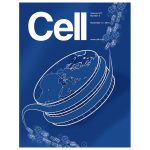Blanco MA, Sykes DB, Gu L, Wu M, Petroni R, Karnik R, Wawer M, Rico J, Li H, Jacobus WD, Jambhekar A, Cheloufi S, Meissner A, Hochedlinger K, Scadden DT, Shi Y.Cell Rep. 2021 Nov 9;37(6):109967. doi: 10.1016/j.celrep.2021.109967.PMID: 34758323
Abstract
Stem and progenitor cells have the capacity to balance self-renewal and differentiation. Hematopoietic myeloid progenitors replenish more than 25 billion terminally differentiated neutrophils every day under homeostatic conditions and can increase this output in response to stress or infection. At what point along the spectrum of maturation do progenitors lose capacity for self-renewal and become irreversibly committed to differentiation? Using a system of conditional myeloid development that can be toggled between self-renewal and differentiation, we interrogate determinants of this “point of no return” in differentiation commitment. Irreversible commitment is due primarily to loss of open regulatory site access and disruption of a positive feedback transcription factor activation loop. Restoration of the transcription factor feedback loop extends the window of cell plasticity and alters the point of no return. These findings demonstrate how the chromatin state enforces and perpetuates cell fate and identify potential avenues for manipulating cell identity.




